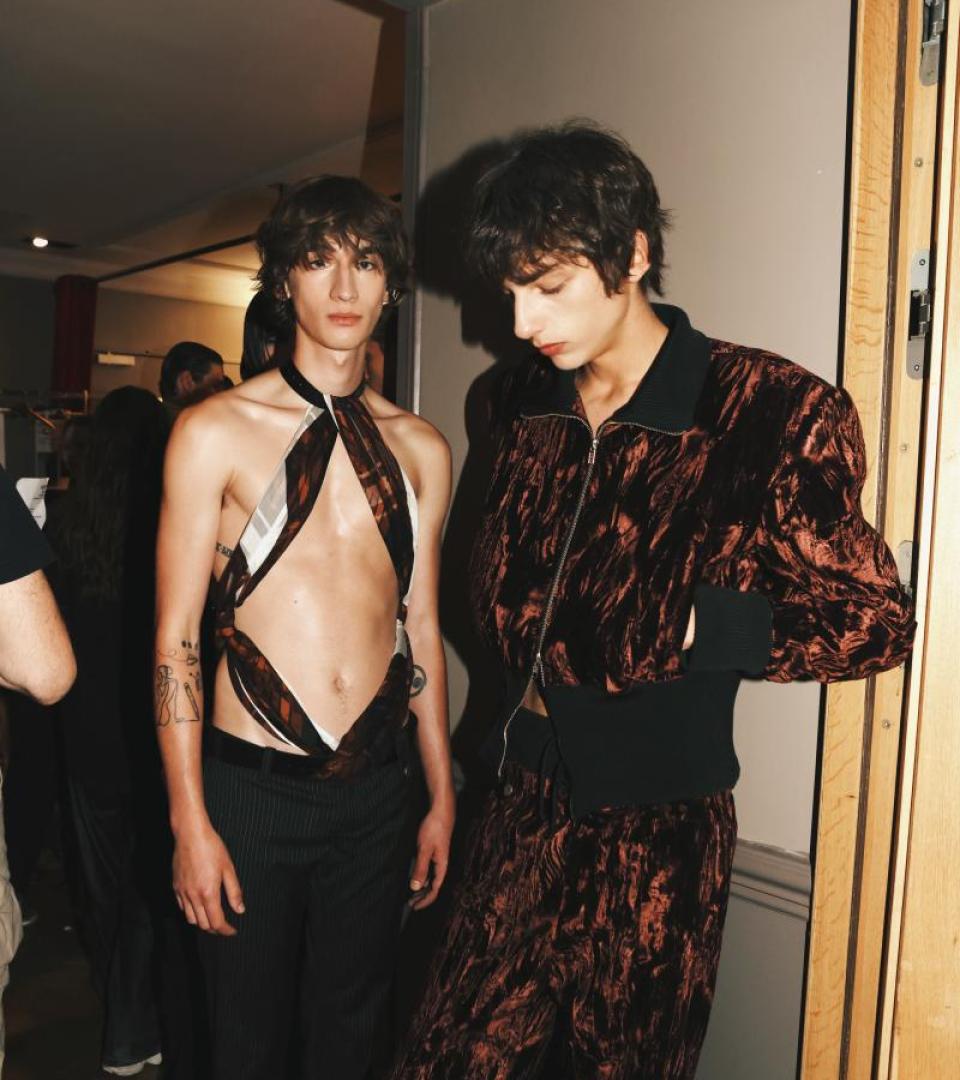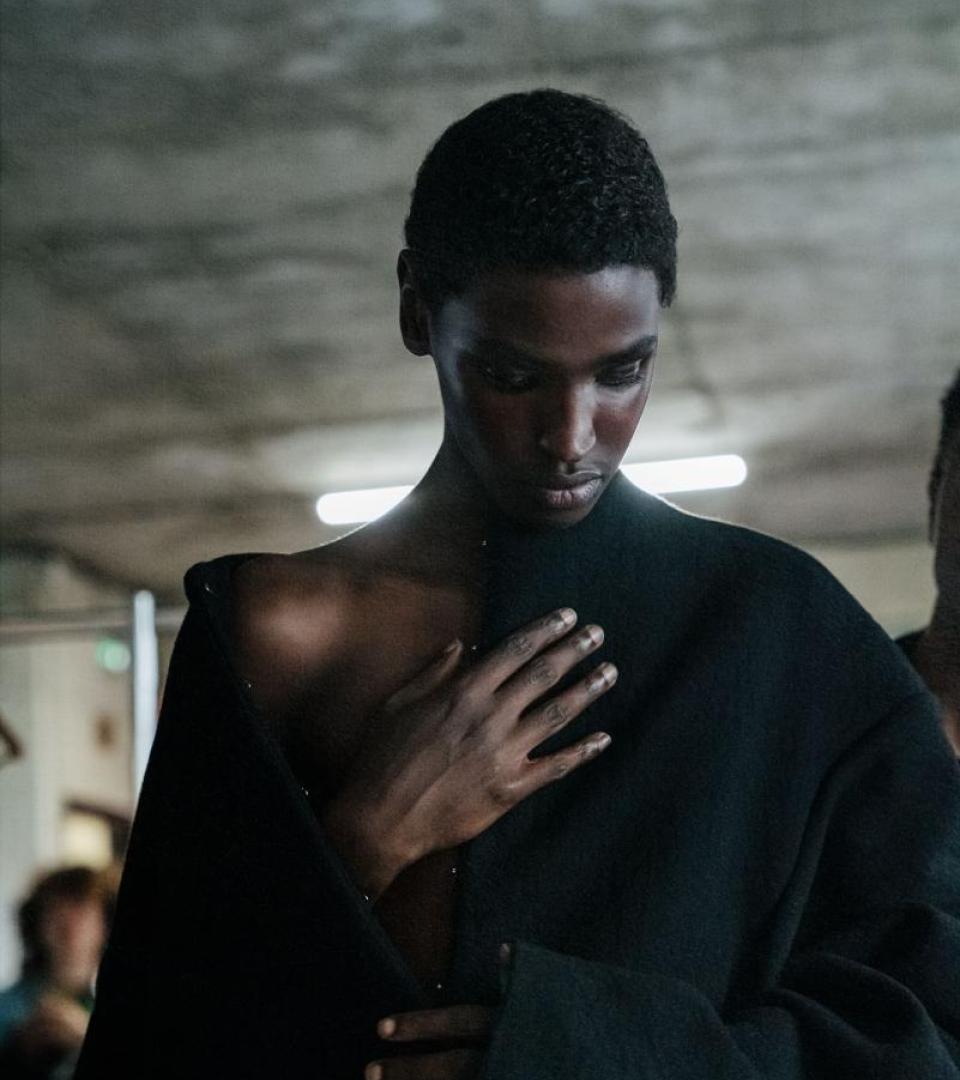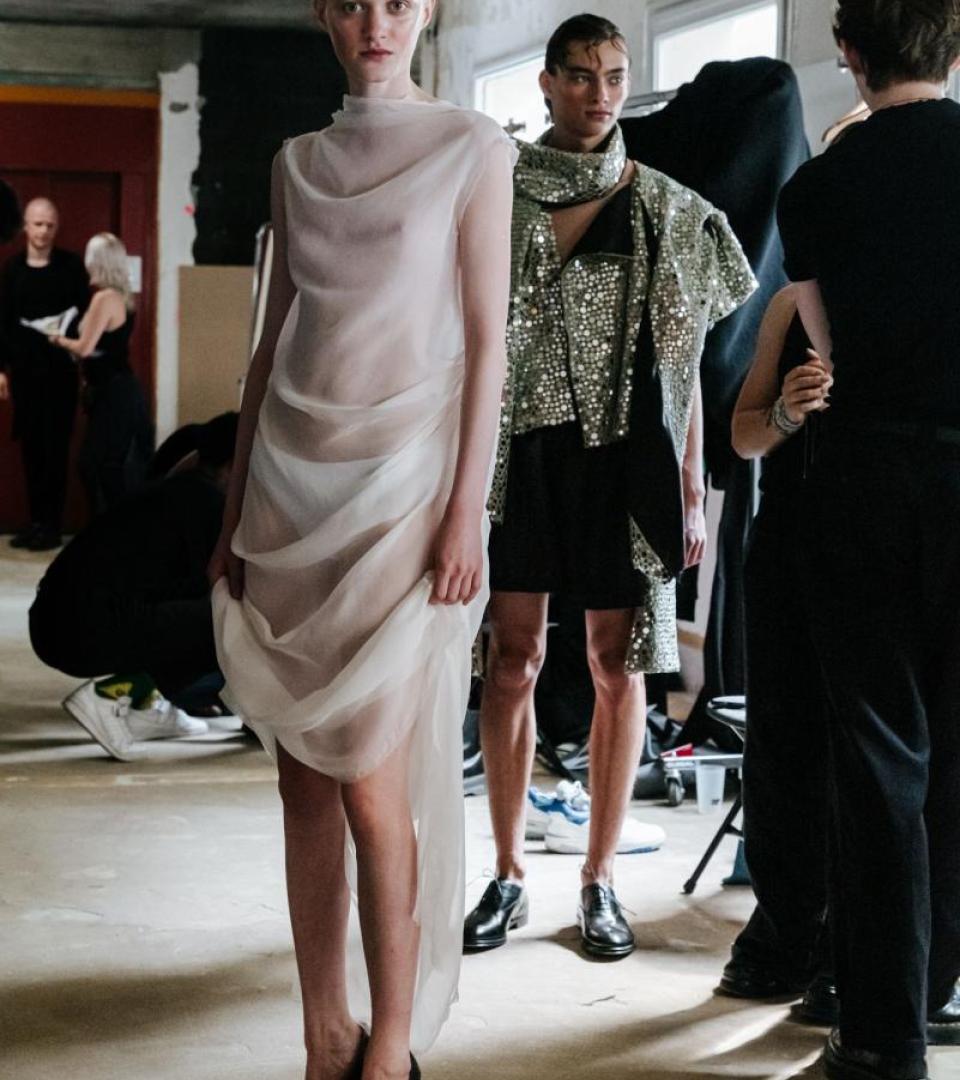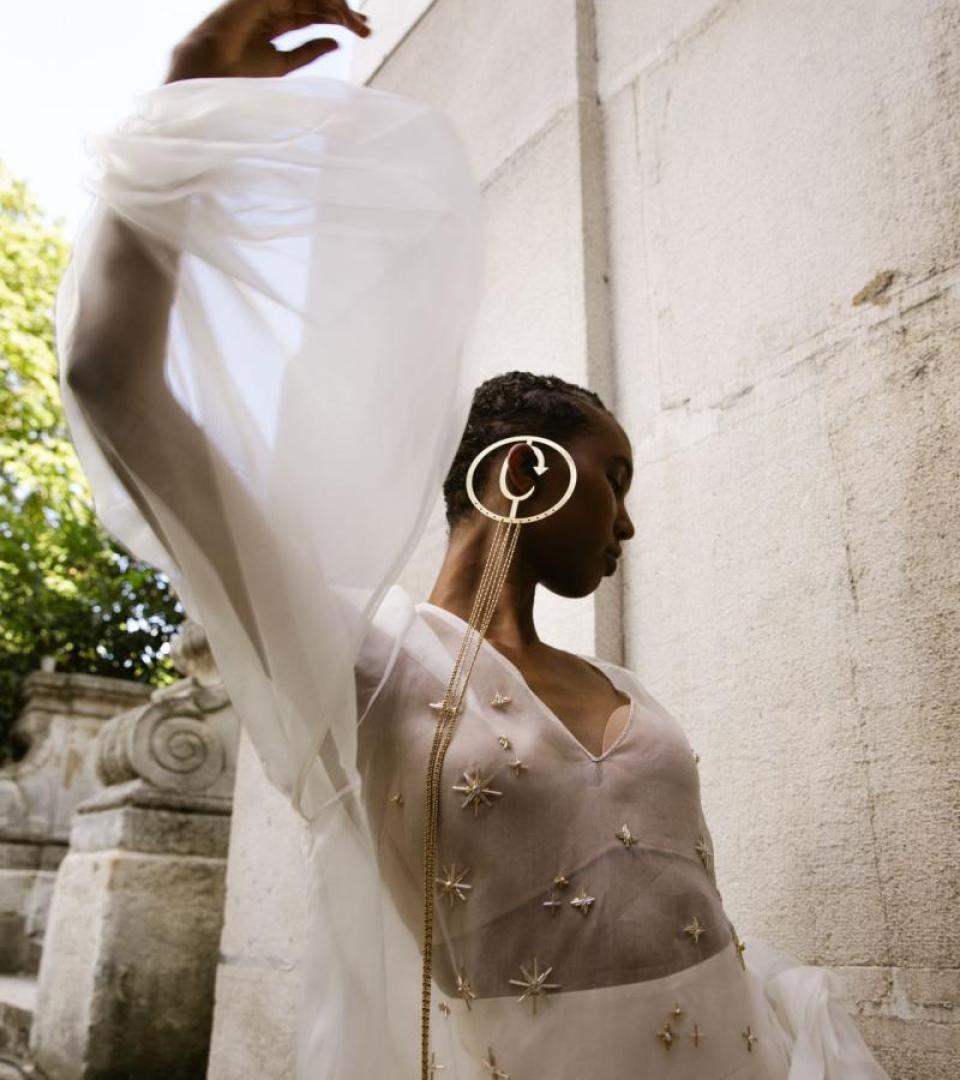A Feel for Fashion: Angelo Flaccavento
Based between Ragusa and Milan, Angelo Flaccavento does not state his age, but his year of birth: 1972. He writes and draws. Prolific in his output as a fashion critic and widely followed, he is a columnist for The Business of Fashion, Il Sole 24 Ore and D. His magazine contributions include System, Vestoj, Alla Carta, Self-Service, Encens. While he is often labeled kindly ruthless, he prefers poetically punk.

What creates an emotional response for you in fashion today?
Today, fashion stirs a lot of emotions, but of a very superficial kind. It is the same mentality as social media, where bursts are big, but everything is immediately forgotten, because the reasons behind the emotions, and probably the emotions themselves, are fickle, insubstantial. In order to create this kind of media-friendly, immediately viral response, fashion houses create grand shows; so grand, in fact, that one feels overwhelmed. A show with the pyramids in the background, or one in a pool of mud are certainly thrilling, but in the end it’s all about the setting, the frame or the storytelling, which most of the time is just a cover-up for clothes that say very little, if nothing. As for me, it’s still creation and invention that create an emotion, and I see very little of that today.
Often we see several designers arriving at a similar idea during a season. How do you explain this creative intuition?
It’s the magic of creation in a way: designers all breathe the same air, they live the same historic moment and maybe see the same things, exhibitions included, and that translate into what they do. In the end, it is the zeitgeist, the spirit of the times, that filters through the work of different authors, and it’s something difficult to put in words or analyse rationally.
How do you feel about designers expressing or interpreting their worldviews in their collections?
I am always interested in the worldviews of designers expressed thorough their work, provided that such views really inform the work and are not mere storytelling. For instance, I do not care about inclusivity as a narrative means; I do care about inclusivity as a way to build garments that truly enhance different body shapes. It is rarely the case. Fashion designers are inventors, not politicians, and yet fashion is political because it affects the way we represent ourselves within society. I’d be more interested in designers’ worldviews in this sense.
How would you like to see fashion evolving this year?
I’d love fashion to ditch the grand and the pompous in favour or the subtle and the emotional. Probably mine is just anachronistic wishful thinking.
Interview has been lightly edited for clarity.



